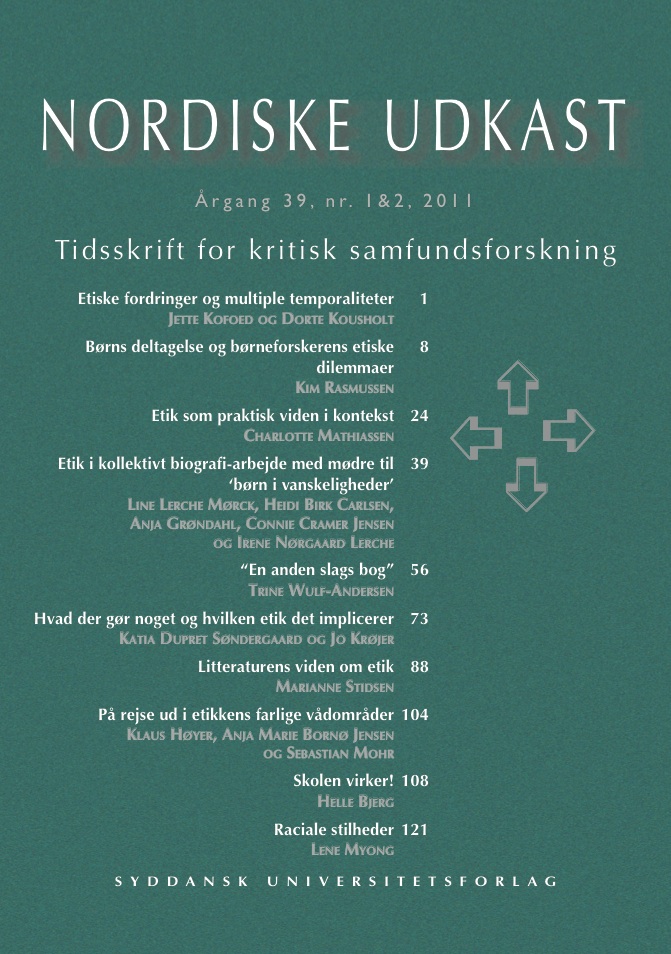Ethics as practical knowledge in context
Examples from interviews about bullying - and about prison life
DOI:
https://doi.org/10.7146/nu.v39i1.134472Keywords:
Ethics, qualitative interviews, risk, benefits, agency, phronesis, virtue, power, pa- ternalism, bullying, prisoner.Abstract
This article discusses ethics in in-depth, ex- plorative and qualitative interviews and argues that on the one hand, ethics in these kinds of interviews is about not risking unnecessary emotional agony for the interviewee, and on the other hand i is also argued that extensive protection of the other can result in a so-called reverse paternalism, where the possibilities of the interviewee’s agency is not sufficiently rec- ognized. The article illustrates the continuing challenge in qualitative research into particularly sensitive subjects, exemplified by two of the author’s latest qualitative, empirical research projects. One project is about adults’ recollected experiences of being bullied in school, and the other project is about the con- ditions under which women serve their time in Danish prisons. And here the argument is that ethics is something that the researcher continu- ally has to negotiate as ethics plays a part in the entire research process and cannot be re- duced to procedural ethics using prefabricated guidelines. Thus, ethics in qualitative research is contextual practical knowledge, developed in research communities and negotiated during an interview. Furthermore, it draws on ethics that exist and ‘work’ within a given culture.




